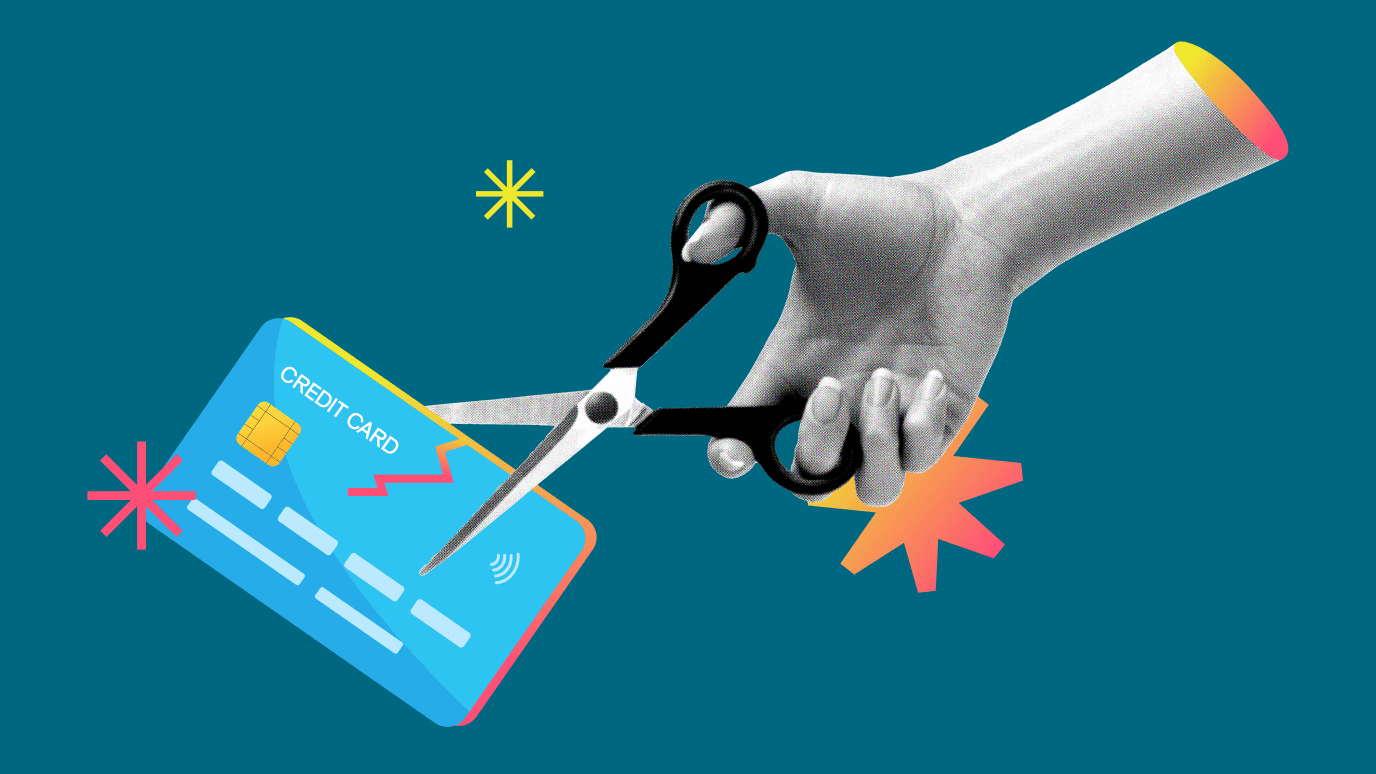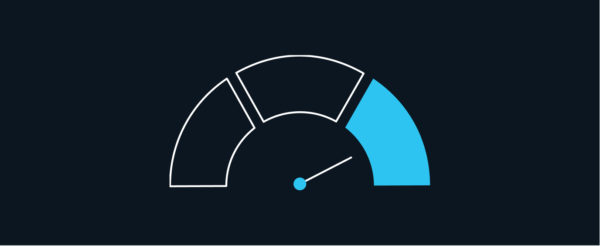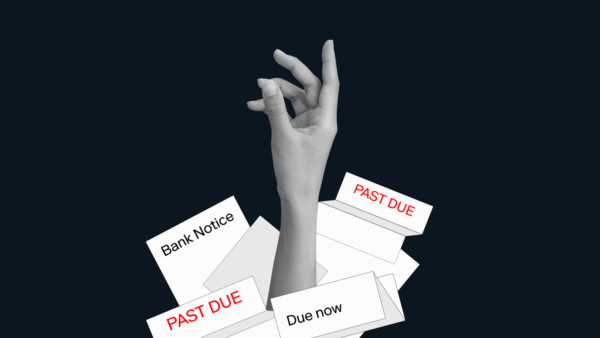Aug 22, 2023
How To Pay Off Credit Card Debt

If you’re carrying a balance on one or more credit cards, you’re not alone: the average American has about $5,733 in credit card debt according to TransUnion’s latest report. Being in debt can be stressful for both your mental and financial health. In addition to negatively impacting your credit score, unchecked credit card debt can leave you drowning in accrued interest, racking up late fees, and struggling to balance your budget. It can be easy to get in over your head with credit card spending, but it can be much harder to figure out how to pay off credit card debt.
However, with some guidance and discipline, it’s possible to overcome these challenges. This guide is designed to help you gain a better understanding of your credit card debt and develop the strategies and motivation you need to pay your debt off faster. With careful planning and discipline, you can take the first step toward your life without credit card debt today and start focusing on your other financial goals sooner.
In this article, we’ll cover:
- Knowing what you owe
- Debt repayment strategies
- Making more and spending less
- Negotiating with creditors
- Staying motivated
Understanding your credit card debt
Taking control of your credit card debt starts with an understanding of your current debt situation. Once you have the full picture, including the amount you owe and your monthly expenses, you can build a budget conducive to getting out of debt.
Evaluate your current debt situation
Knowing what you owe is the first step to eliminating debt. Whether you’ve accumulated debt on one credit card or ten, start by understanding the total amount of money you owe across all your cards. Then, consider details like interest rates and minimum payments for each credit card.
Here’s how to get started:
- List all your outstanding balances: Your most current statements show you what you owe on each account. Make a list that includes the name of each card and your outstanding balances.
- Determine your interest rates: The average credit card interest rate as of 2023 is between 23% and 24.5%, which can have a significant impact on how much your debt grows every month. Check the interest rate for each of your cards to help determine how much additional debt you’ll incur each month you carry a balance. Interest rates can vary widely based on the credit card issuer, the individual’s credit score, and other factors.
- Know your minimum monthly payments: List the minimum payments for each account and add them up to determine your total minimum debt payment each month. You’ll need to budget for the minimums to avoid racking up fees, and likely need to pay more than the minimums to eliminate your balance entirely.
Track your expenses and create a budget
It’s important to know how much money you have coming in and going out each month so you can make a budget. If you don’t already track your expenses, now is the time to start. Analyzing your spending habits can help you identify areas where you might be able to cut back and reallocate funds to debt repayment. Once you understand your habits, you can build a budget that includes plans for paying more than your minimum credit card payments. Online banking tools and budgeting apps are both useful ways to monitor your expenses in real-time and make sure you’re sticking to your budget.
Strategies for debt repayment
Now that you know what you owe and have a monthly budget, it’s time to choose a debt repayment method. Here are three popular strategies to consider.
Debt snowball method
With the debt snowball method, you organize your debts from smallest to largest and dedicate as much of your monthly income as possible toward paying off your smallest debt first. Once that’s paid off in full, you tackle the next-smallest balance. The theory behind this strategy is that you’ll gain confidence and momentum as you pay off these smaller amounts more quickly. The snowball method doesn’t take interest rates into account, just the account balance, so it isn’t always the fastest method for paying off your total debt. But if you’re motivated by small but meaningful victories, the debt snowball method could be right for you.
Debt avalanche method
Unlike the debt snowball strategy, the debt avalanche method is all about interest rates. Start by listing all of your credit card debts by interest rate, from highest to lowest. Then focus on paying off the card with the highest interest rate first, followed by the next highest, and so on until you’re debt-free. It might take longer to pay off one balance entirely with the debt avalanche method, but by eliminating your higher interest rate debt first, you can often save yourself money in the long run.
Debt consolidation
Debt consolidation rolls all of your credit card bills into one easy-to-manage monthly payment, which can be helpful if you’re carrying a balance on multiple cards. There are a few options available. These include using a debt consolidation service, taking out a personal loan, tapping into your home equity, or using a balance transfer card. In general, debt consolidation could be advantageous if the interest rate on your new card or loan is lower than the rates on your existing cards
Be aware that your credit score could impact the options available to you and the interest rates you can get. In addition, debt consolidation services and balance transfer credit cards often come with fees, so be sure you fully understand all the costs before you go this route.
Increase your income and reduce expenses
Finding ways to increase your income and reduce your expenses can allow you to put more money toward paying off your credit card debt. And the good news is that there are concrete actions you can take to make it happen.
Generate additional income sources
If it fits in with your current lifestyle, consider exploring a side hustle, like a part-time job, freelancing, or even starting a small business. Start by identifying the skills, talents, and interests you have that could be monetized. Offering freelance services in your area of expertise or taking on gigs like pet sitting or making deliveries could help generate the additional income you need to reduce your credit card debt. Several online platforms and apps offer part-time, hourly, and on-demand work opportunities that can put more cash in your pocket.
Reduce your expenses
Finding ways to save money can give you extra money to put toward eliminating your credit card debt. Review your monthly expenses and prioritize your needs over your wants. What non-essential items or services can you cut back on? Consider finding alternatives to any pricier habits, products, or services. For example, you could cancel your unused subscriptions or commit to cooking and making coffee at home instead of dining out. It may also pay to research competitive rates and leverage your findings to request discounts, promotions, or price negotiations with service providers. If possible, consider using a debit card exclusively to limit your spending to the money you actually have in the bank and avoid incurring more credit card debt.
Negotiate with creditors
Although it might seem intimidating, it is possible to negotiate with your creditors for lower interest rates or more manageable payment plans. Proactive, honest communication and a friendly attitude can go a long way. You may also consider seeking professional credit counseling to assist you with debt management.
Contacting credit card companies
Many creditors will be open to adjusting how you repay your debt when you’re facing financial difficulties. Approaching your credit card company with transparency about your current financial situation allows them to offer alternative payment options or other assistance. Though this may not work in every case, it’s always worth a try, and you might be surprised by the results. Here are a few tips for successfully negotiating lower interest rates or payment plans:
- Research competitive interest rates and mention them during negotiations.
- Highlight your positive payment history or loyalty to the credit card company.
- Explore balance transfer options to lower interest rates.
- Discuss payment plans with reduced monthly payment options.
- Stay persistent and assertive, but always respectful, on the phone.
Seeking professional help
Credit counselors are professionals with specialized training in debt, credit, budgeting, and other financial matters. Not only can they advise you about personal money management, but they can also work on your behalf to arrange debt management plans and lower interest rates. But keep in mind that professional debt counseling services usually aren’t free. So while you may benefit from your credit counselor’s knowledge and negotiation skills, you may be charged for the service. Look for reputable credit counseling businesses by reading reviews online and checking companies’ ratings with the Better Business Bureau.
Stay motivated and avoid further debt
Remember that paying off your credit card debt is a process, and it may not be a quick one. But you’re not alone on your debt repayment journey: Americans have accumulated over $986 billion in credit card debt, averaging about $2,700 in unpaid balances per person. If you stay focused and motivated, it is possible to become free of credit card debt. Here are some tips to help you stay the course and accomplish your debt repayment goals:
- Set realistic goals and milestones
- Commit to budgeting and tracking your spending
- Celebrate small victories along the way
- Seek support from family, friends, or support groups
- Develop healthy financial habits to prevent future debt accumulation
There is life after credit card debt
By prioritizing debt repayment today, you can take control of your financial situation and create hope for the future. It may not be the easiest thing you’ve ever done, but it’s likely to be one of the most rewarding.

Sign up for The Wallet.
Stash’s newsletter can prepare you to start investing.

Related Articles

Credit Cards vs. Debit Cards: The Differences Can Add Up

How To Pay Off Your Student Loans Faster

What Is the Debt Snowball Method?

Planning Your Finances as a Member of the Military

How to Build Credit: Why You Need It and How to Get It

How to Get Out of Debt in 6 steps





